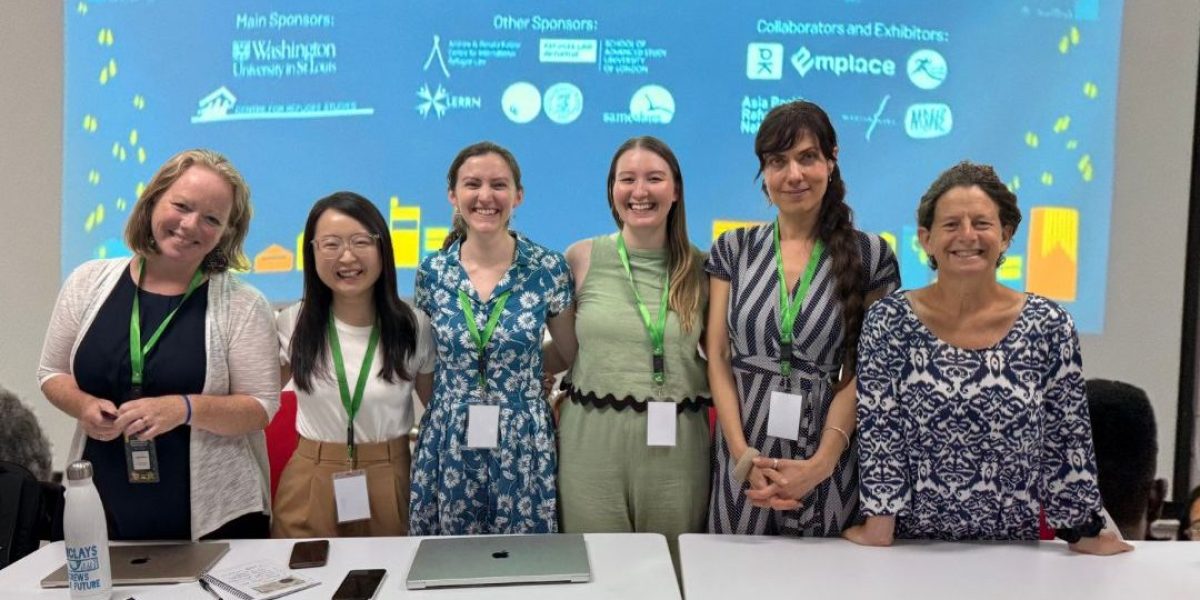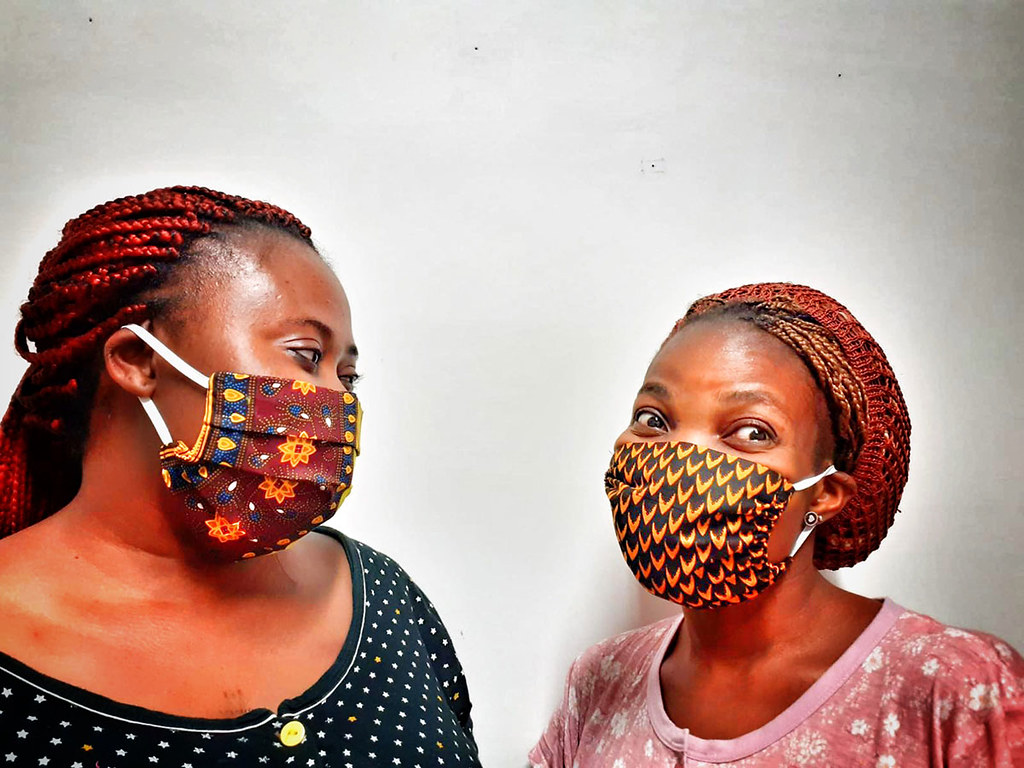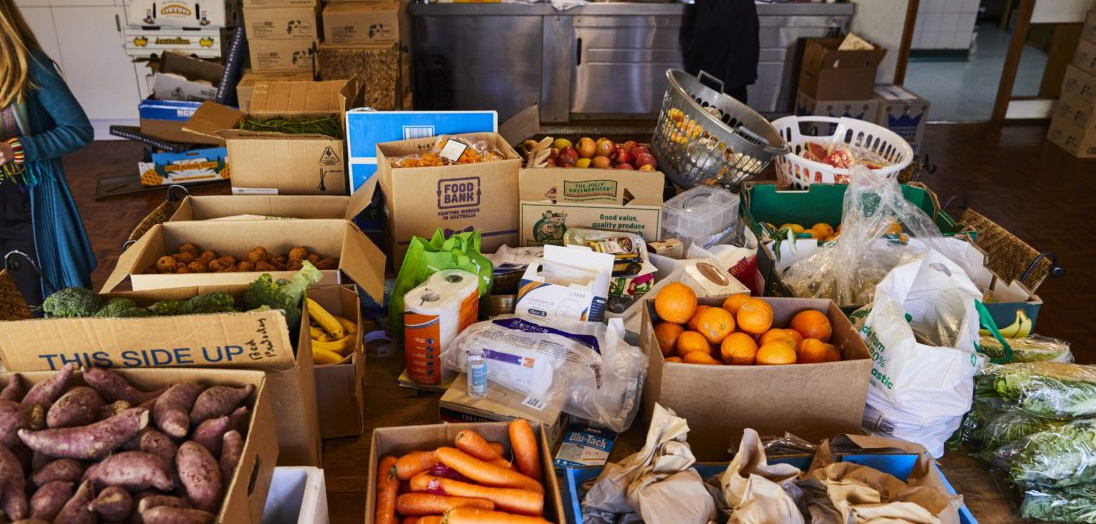Migration with Dignity: JRS Australia’s Contributions to International Climate Displacement Research
17 February 2025

From January 21st – 23rd 2025, Amelia Savage and Charlotte Evans (Lottie) had the privilege of attending the 20th Conference of the International Association for the Study of Forced Migration (IASFM). Held in Yogyakarta, Indonesia, this conference brought together academics, practitioners, and voices of lived experience, into a rich space of listening, learning, and connecting.
Lottie and Amelia were invited to speak on a panel, titled “Humanitarian and Human Rights Responses to Complex Displacement”, brought together by Associate Professor Susan Banki, from the University of Sydney. While the conference had a substantial academic focus, organisations such as JRS Australia provided important practitioner perspectives – contributing ‘action gaps’, as well as ‘research gaps’, to the conversation.
Their panel followed an arc from theoretical framings of complex displacement, to the intersections of forced migration with climate change and modern slavery, to more grounded perspectives provided by JRS and the Kaldor Centre for International Refugee Law. Lottie and Amelia presented a piece of work conducted in 2023, during Lottie’s time as an intern at JRS Australia, summarising key findings from a research and consultation process they had conducted with stakeholders including policy experts, faith-based organisations, and affected communities.
In particular, their contribution to the panel focused on the concept of ‘migration as adaptation’. Migration as adaptation describes the way that migration pathways can be used proactively, and with dignity, to offer one adaptation response for individuals and communities living in climate-vulnerable contexts. In such contexts, migration forms one part of a ‘toolkit’ of responses to climate change, but Lottie and Amelia stressed that opening pathways for migration does not mean neglecting efforts to tackle the root causes of climate change – reducing our dependence on fossil fuels – and developing in-situ adaptation and climate finance programmes.
Lottie elaborated on the notion of Migration with Dignity, a concept pioneered by Anote Tong, former President of Kiribati, that migration pathways must ensure that dignity and human rights are safeguarded for migrants moving in the context of climate change. In particular, the issue of exploitation experienced by Pacific migrant workers was raised, and a critical examination of power and agency within Australia’s emerging Pacific visa pathways.
Amelia then explored the challenges of resettlement, including the lack of support and preparedness for Pacific communities arriving to Australia. With the new Pacific Engagement Visa (PEV) recently launched, in 2024, the need for culturally sensitive pre- and post-departure preparation was highlighted. Amelia also considered what understanding, experience, and practices can be shared from the climate mobility space back to the refugee sector, and vice versa, acknowledging that this is a messy, iterative space.
Across the panel, the notion of complexity was brought to the fore. While in rare instances, climate is a clear driver of displacement, in most cases – including with slow onset changes, like sea level rise – climate instead acts as a vulnerability multiplier, compounding factors that may drive someone to choose, or be forced, to migrate. With the Australian Government seeking to deepen relations with its ‘Pacific Family’, launching the Pacific Engagement Visa, and bidding to co-host COP31 with the Pacific, scrutinising both Australia’s migration and climate policies remains imperative.

Alongside the rich learning gained from attending IASFM, Amelia and Lottie’s presence at the international conference enabled them to connect with JRS colleagues from the Indonesia and Asia Pacific offices, and other like-minded organisations. JRS Australia is looking forward to nurturing these relationships, building our expertise, and developing our advocacy within the region.
Learn more through our Climate Related Displacement page.
Lottie is also delighted to be able to continue contributing to JRS Australia’s emerging work on climate mobility through her interim role as Community Engagement Coordinator over the next few months!


